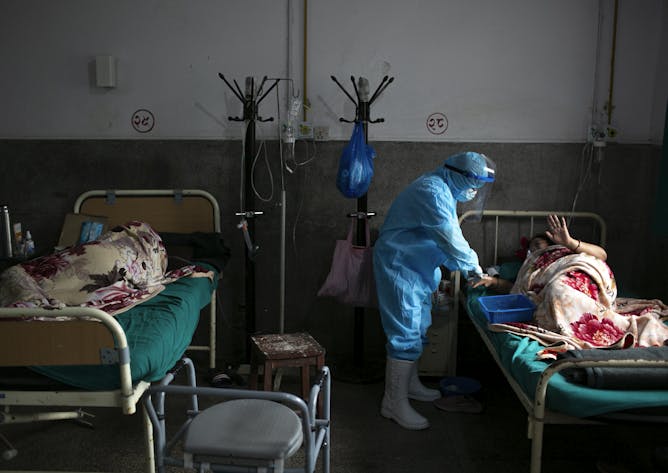|
Hatred is a powerful emotion and one that is the root cause of war, civil conflicts and violence. The world has recently seen the latest example of hatred-inspired violence playing out between Palestinians and Israelis, resulting in the deaths of about 250 people, including 66 children in Gaza. What causes hate? And how could it be prevented?
Today in The Conversation Canada, Izzeldin Abuelaish of the University of Toronto puts forward an interesting concept: hate should be considered a contagious disease and a public health issue so politicians, health care officials and policy makers can focus on ways to prevent it. Dr. Abuelaish, a Palestinian medical doctor who was born and raised in Jabalia Refugee Camp in Gaza, researches health as a vehicle of peace. His insights are based on tremendous personal loss – his three daughters were killed in the Gaza War in 2009.
“Hatred is complex, discrete, involves destructive intent, is contagious to individuals, groups and communities and is often the result of exposure to harm,” he writes.
Also today:
Regards,
|

A Palestinian protester uses a slingshot during clashes with Israeli soldiers at the northern entrance of the West Bank city of Ramallah on May 21, the day a cease-fire took effect after 11 days of heavy fighting between Israel and Gaza’s Hamas rulers.
(AP Photo/Nasser Nasser)
Izzeldin Abuelaish, University of Toronto
Hate-inspired violence is the cause of conflict around the world. It's time to consider hatred as a serious public health issues and even a disease so it can be treated — and possibly prevented.
|

A nurse treats a patient inside a COVID-19 ward of a government run hospital in Kathmandu, Nepal on May 12, 2021.
(AP Photo/Niranjan Shrestha)
Katharine Rankin, University of Toronto; David Citrin, University of Washington; Galen Murton, James Madison University ; Sienna Craig, Dartmouth College
The COVID-19 cases are surging in Nepal, potentially surpassing India's reproduction rate, but the country is out of vaccines. Global aid could help with one of the worst health crisis in South Asia.
|

Pandemic skepticism has given struggling churches a much needed financial boost.
(Shutterstock)
Robin Willey, Concordia University of Edmonton
Despite outbreaks, some church leaders in Alberta have continued to downplay the severity of COVID-19. Choosing to double down on pandemic skepticism.
|

Protesters march and hold up posters along the streets of Hamilton to support anti racism and Black Lives Matter.
(Shutterstock)
Azra Rashid, University of Sydney
The Canadian response to racism south of the border can be described as an Americanization of Canadian history.
|

Scientists have been trying to pinpoint the exact causes of the declines in some wild Pacific salmon populations for decades.
(Amy Romer)
Gideon Mordecai, University of British Columbia
A study of viral variants finds Piscine orthoreovirus continuously spills over from farmed salmon to wild salmon.
|
Culture + Society
|
-
Mark Wilson, Michigan State University
Even when there's no pandemic underway, the local economy may take a hit.
|
|
Business + Economy
|
-
Mark DesJardine, Penn State; Tima Bansal, Western University
Engine No. 1 convinced other shareholders to support at least two of its nominees to join the company's board as part of its push for a stronger sustainability strategy at Exxon.
|
|
Science + Technology
|
-
Joseph Woodgate, Queen Mary University of London
Bees mate in mid-air, where it's almost impossible to observe them.
|
|